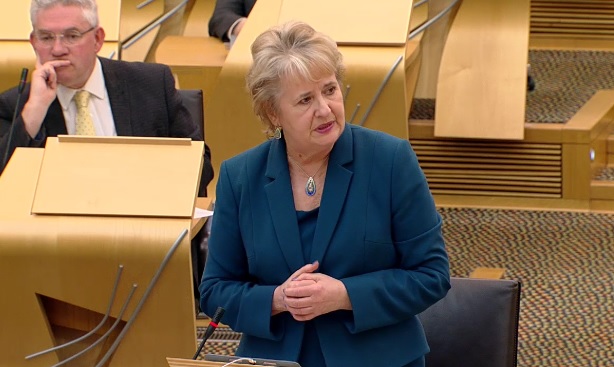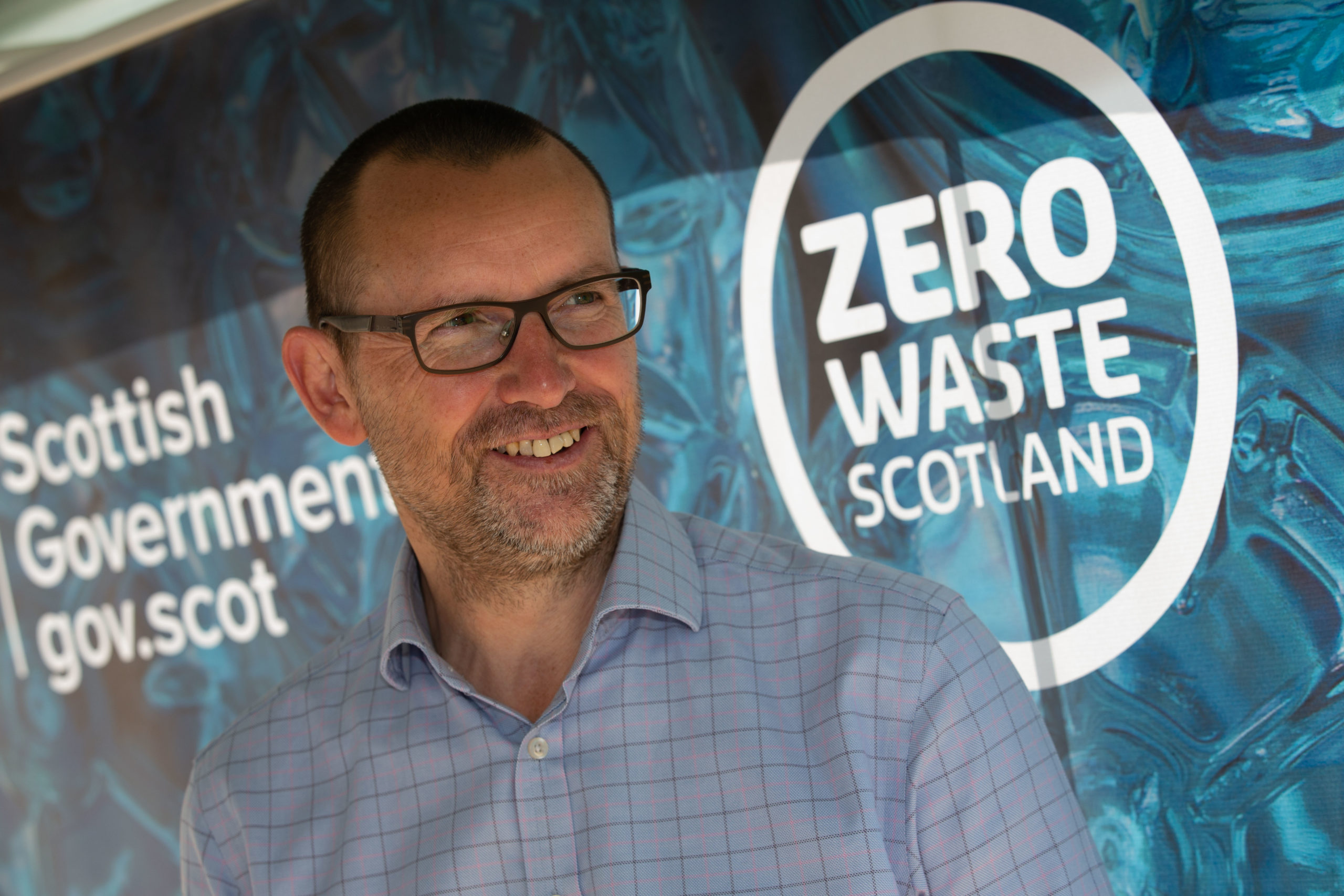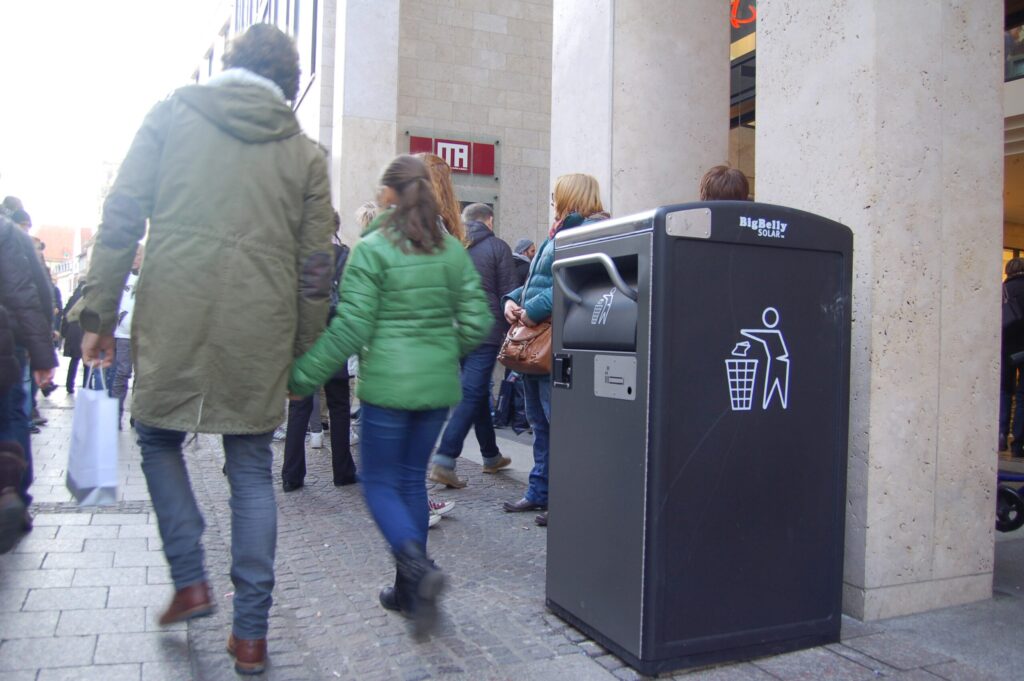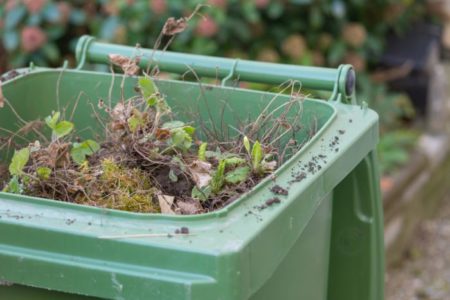The Recycling Improvement Fund was unveiled to mark Global Recycling Day. Local authorities across Scotland have been encouraged to apply for funding to help drive “innovations and improvements” to recycling in their area and across the country.

This could include promoting waste prevention or reuse, improving the consistency of collections, collecting ‘problematic’ materials such as electrical items, improving sorting and treatment infrastructure, or introducing new low-carbon technologies.
Environment and climate change secretary Roseanna Cunningham said: “The Recycling Improvement Fund offers an opportunity for national and local government and the waste sector to continue our partnership to reinvigorate improvements in recycling across the country, and make it easier for households to make the right choices.
“The fund will help local authorities to take forward projects that tackle key challenges and increase recycling performance in their area. We’re also keen to see new ideas from local authorities that can ensure our recycling infrastructure keeps pace with the modern economy. For example, the growth in waste electrical equipment and the role re-use and repair can play, or broader changes in household behaviours which affect the volume and types of waste managed by local authorities.”
The fund opens for expressions of interest from 22 March.
Local authorities
The funding programme is open to individual local authorities, groups of local authorities, and local authority-led partnerships involving other organisations, such as those from the third or private sectors.

Zero Waste Scotland will be responsible for day-to-day administration of the fund, including managing applications, assessments and contracting.
The chief executive of Zero Waste Scotland, Iain Gulland, said: “Zero Waste Scotland is proud to be working with the Scottish government and local authorities to deliver one of the country’s most exciting and ambitious recycling, reuse and waste prevention programmes in our history, which will improve services and infrastructure for people across the country. I’m really looking forward to applications from local authorities for ideas to develop their infrastructure.
“This fund will be transformational in helping our communities embrace a circular economy, where materials and products are kept in use for as long as possible, and where new economic opportunities and social benefits flourish.”
Scotland
Scotland hopes to achieve a 70% recycling rate by 2025. Statistics from 2019 show that the Scottish household waste recycling rate was 44.9%.

Recycling figures for 2019 show local authorities performance ranges from a high of 67.69% to 17.13%.
Councillor Steven Heddle, the spokesperson for Environment and Economy at the Convention of Scottish Local Authorities (COSLA), the national association of 32 Scottish councils, said: “We welcome this fund and look forward to working in partnership with our member councils, the Scottish government and Zero Waste Scotland to facilitate change and bring benefit to communities throughout Scotland.
“Councils across Scotland have set themselves ambitious climate change targets, and tackling our throw-away culture is part of this. Councils know their local communities and understand the specific opportunities and challenges in their areas. The fund offers real opportunity to start addressing some of these at the local level, offers breadth of opportunity and seeks change and innovation.”
SMEs
Though the fund is aimed at local authorities, its launch was welcomed by representatives of the private sector, including the Resource Management Association Scotland (RMAS), a not-for-profit, non-political membership organisation for micro, small and medium sized resource management companies operating in Scotland. The RMAS hopes the fund will deliver ‘knock-on’ benefits to small and medium-sized enterprises (SMEs).

Duncan Simpson, co-chair of the RMAS Technical and Innovation Group, told letsrecycle.com: “RMAS members broadly welcome the strong show of support and commitment to recycling infrastructure in Scotland and the Scottish government’s continued drive to more sustainable forms of resources and waste management.
“The Scottish recycling infrastructure has delivered huge change over the past number of years and many RMAS members have helped contribute to those achievements. They have done this by delivering services to local authorities, commercial business and other important sectors such as building and construction.”
He added: “This fund mainly focuses support on to local government collections, and RMAS members would highlight the need to also support the SME sector. It is often these companies who ensure that waste minimisation, reuse and recycling services as well as waste treatment and disposal collections are made available across the country.”
Mr Simpson said further support from the Scottish government was needed to achieve Net Carbon Zero by 2045, including a halt to the removal of exemptions on red diesel. He said that while RMAS members supported the principle of moving away from fossil fuels on a “level playing field”, support for alternatives should be put in place before any such changes should occur.








Subscribe for free